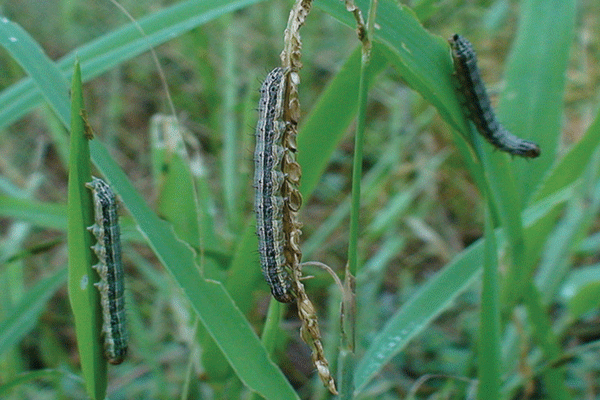
Zimbabwe should brace for a voracious armyworm outbreak in the 2017 to 2018 farming season, a farming specialist has warned.
BY MUNESU NYAKUDYA
Agricultural extension officer (Agritex) for Gokwe South, John Ngwenya, has said the fall armyworm, which was first noticed in Africa in January 2016, causing massive damage to crops in several West African countries, was expected to wreak havoc in the coming season.
Addressing farmers at a conservation farming field day held by Sustainable Intensification of Market-Based Agriculture (Simba) in Gokwe last week, Ngwenya said experts had not yet figured out treatment against the maggot, and it was expected to hit back aggressively next season.
“The fall armyworm is different from the other worms that we used to know in that it eats and destroys everything,” he said.
“I urge you to prepare and carefully plan because it is expected to come back next season and this time it will be aggressive. This is because it was not carefully treated, as it caught us unawares and experts were also not aware of how it could be treated.”
Ngwenya told farmers that the correct and specific treatment against the caterpillar had not yet been found.
- Chamisa under fire over US$120K donation
- Mavhunga puts DeMbare into Chibuku quarterfinals
- Pension funds bet on Cabora Bassa oilfields
- Councils defy govt fire tender directive
Keep Reading
“I urge you to use all the methods you used to treat it in the previous season. We have not yet found the correct methods of treatment, but you are encouraged to use any method that worked for you,” he said.
Ngwenya also urged farmers to be careful and harvest early and in time to avoid post-harvest losses.
“I urge you again to co-operate and work with non-governmental organisations such as Welthungerhilfe, which has good projects such as Simba, so that you can be taught good and sustainable farming systems,” he said.
Welthungerhilfe is funded by the European Union and is implementing several projects in a number of provinces that include Matabeleland South, Mashonaland West, Matabeleland North and Midlands.












